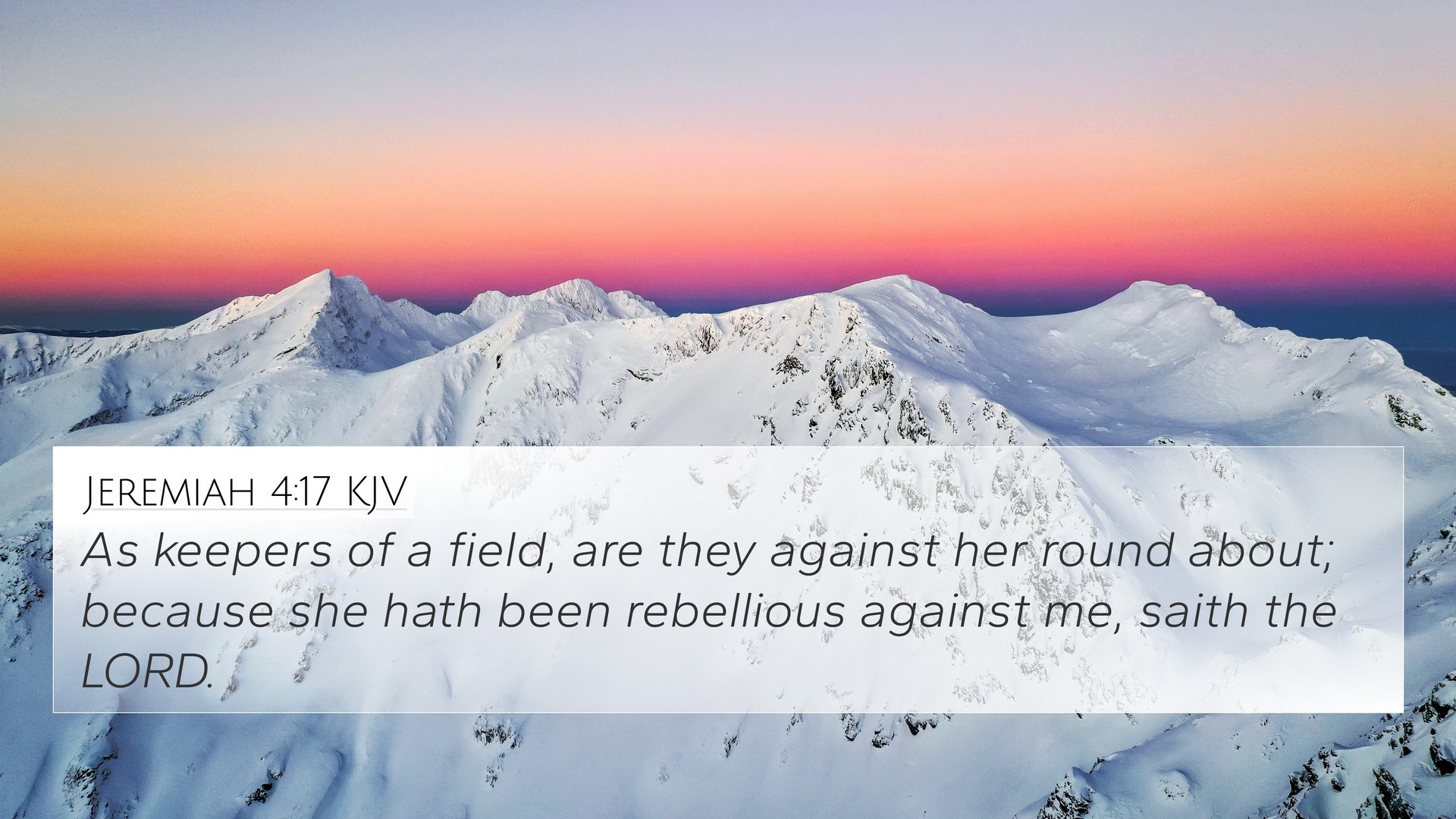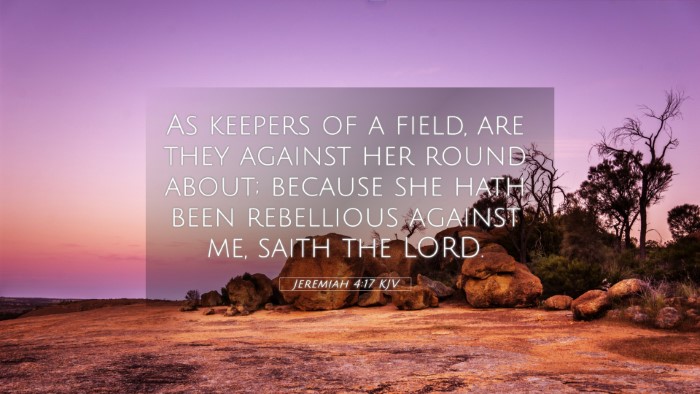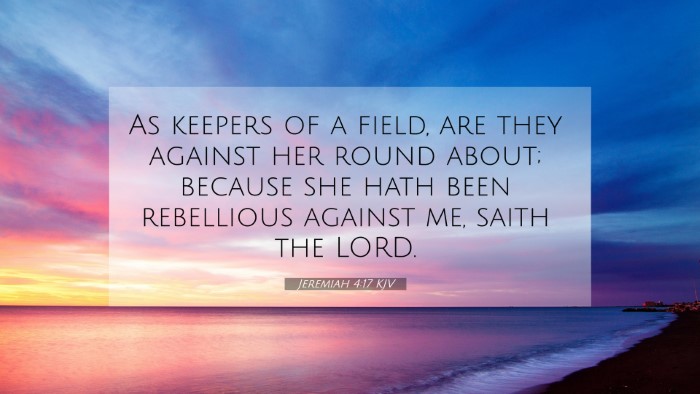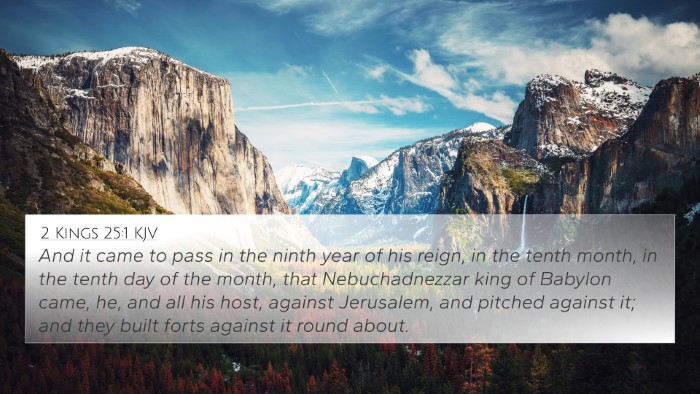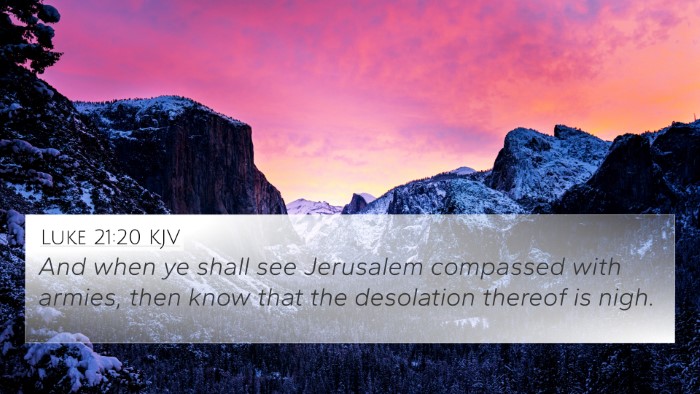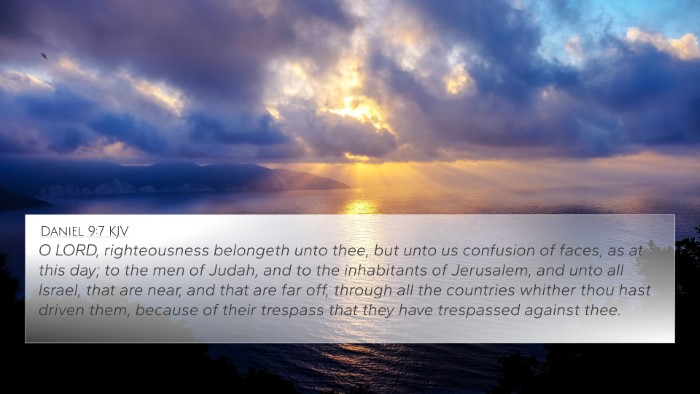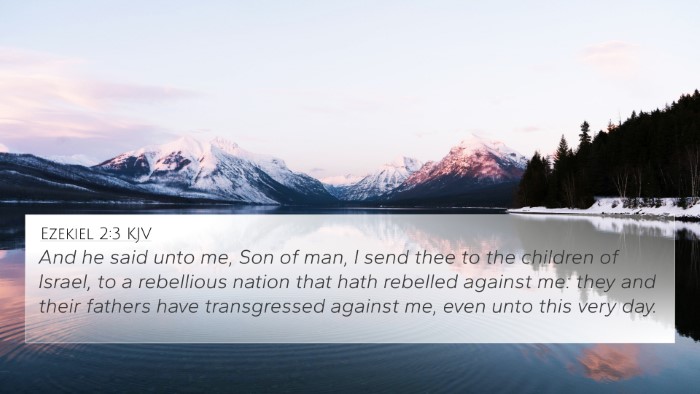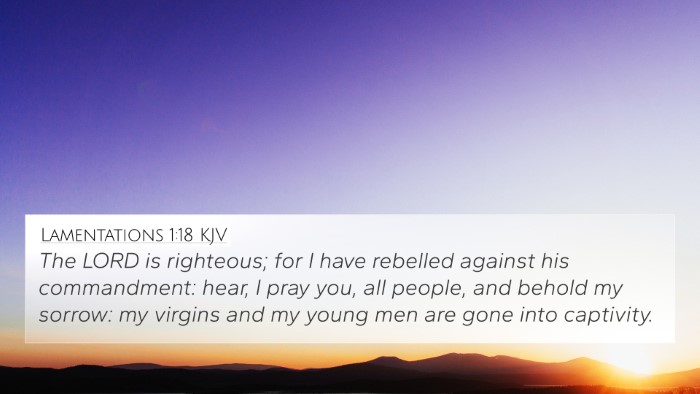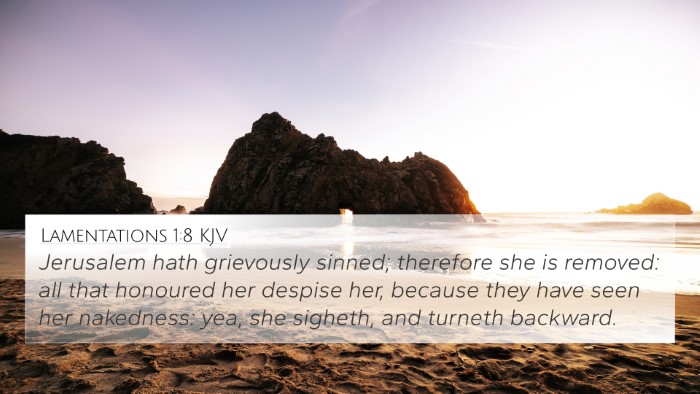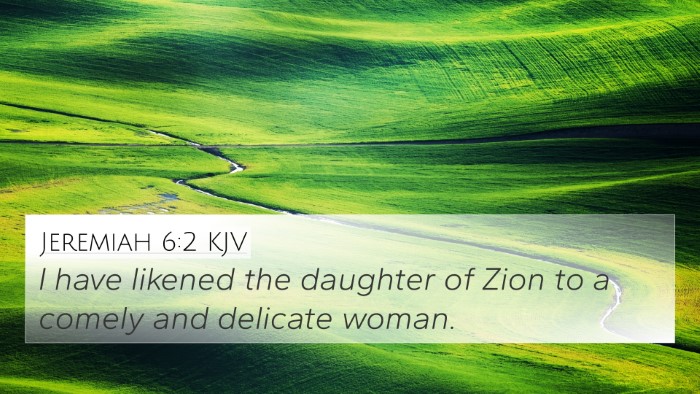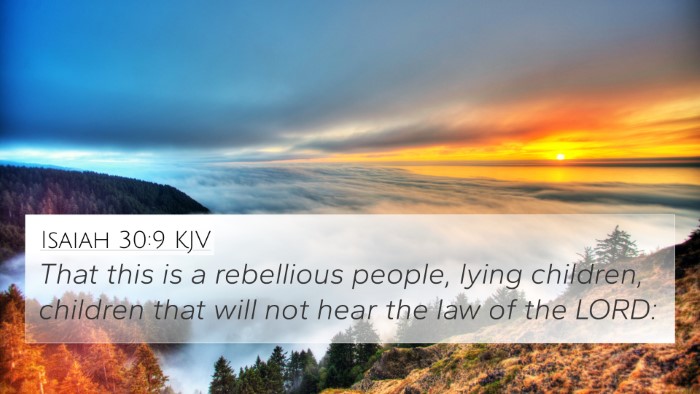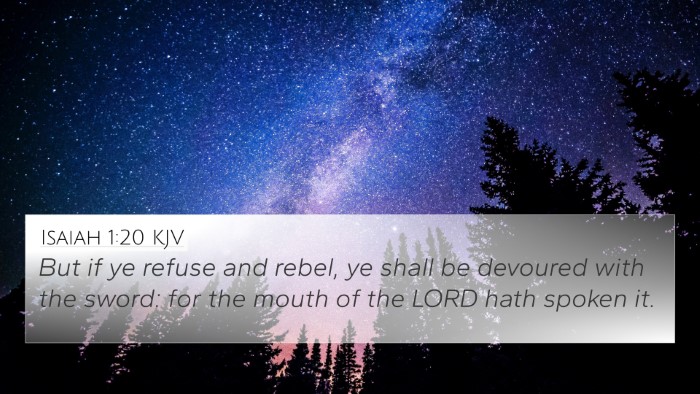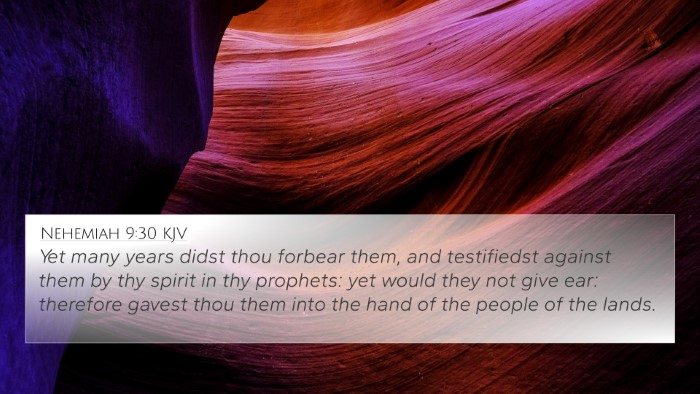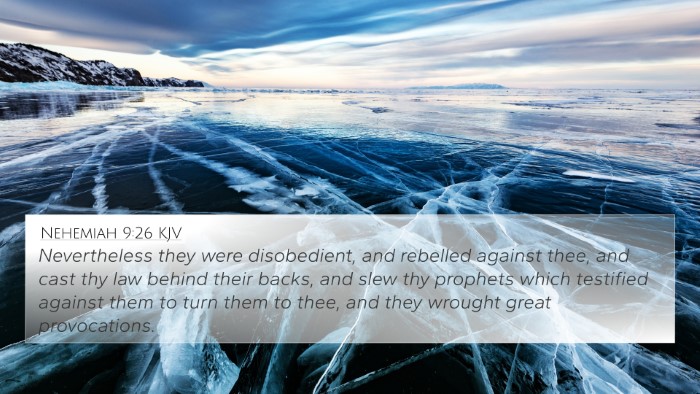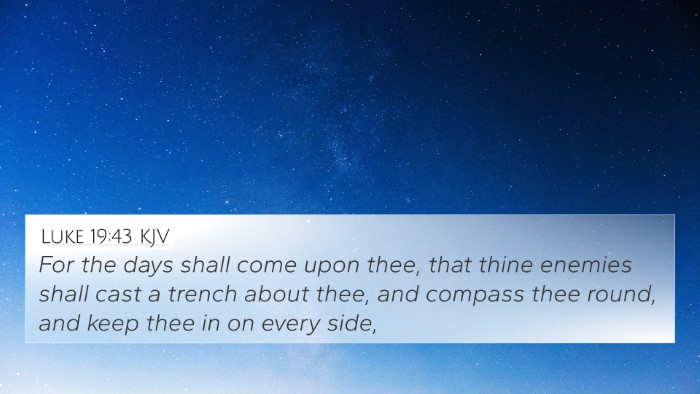Understanding Jeremiah 4:17
Jeremiah 4:17 states: "As keepers of a field are they against her round about, because she hath been rebellious against me, saith the Lord."
This verse captures the essence of God's judgment against Judah for her persistent rebellion. The imagery of keepers of a field suggests a protective stance, yet they are called to vigilance against the city of Jerusalem, which represents the people of God.
Analysis and Interpretation
Multiple public domain commentaries provide insights into this verse, shedding light on its historical context, theological significances, and the implications for both the original audience and contemporary readers.
-
Matthew Henry's Commentary:
Henry emphasizes God's righteous anger towards Judah's sins. He articulates that the keepers serve as watchmen, delineating that their role is crucial in capturing the essence of divine oversight in a rebellious society. He notes that rebellion against God incurs consequences, and divine protection can transform into divine judgment.
-
Albert Barnes' Notes:
Barnes interprets the keepers of a field as a metaphor for the surrounding nations that will encircle Jerusalem, highlighting the nation’s impending desolation. He notes that these nations are a reflection of the surrounding world's response to Israel's unfaithfulness and serve a role in divine retribution.
-
Adam Clarke's Commentary:
Clarke provides a practical contextualization, indicating that God uses the imagery of agricultural life, familiar to the Israelites, to convey the seriousness of their state. His commentary highlights the tragic nature of Israel's rebellion, which leads to their destruction and the necessity of repentance.
Context and Themes
The broader context of Jeremiah involves warnings of impending judgment against Judah due to idolatry and disobedience. Jeremiah aims to exhort the people towards repentance, and this specific verse is a poignant reminder of the gravity of their situation. The themes of rebellion, judgment, and divine protection recur throughout the chapters.
Cross-References
Several Bible verses connect thematically and contextually with Jeremiah 4:17:
- Isaiah 1:7 - Describes the desolation of Judah and the consequences of rebellion.
- Jeremiah 6:1 - Contains warnings against impending judgment, similar to the context of our verse.
- Zephaniah 1:8 - Speaks of the day of the Lord’s judgment, echoing the themes of divine retribution.
- Ezekiel 7:2-3 - Portrays the coming destruction due to the sins of Israel.
- Lamentations 2:8 - Reflects on the desolation of Jerusalem due to its rebellion.
- Hosea 8:1 - Indicates the impending judgment as a result of Israel's sins.
- Matthew 23:37 - Reflects Jesus’ lament over Jerusalem and its refusal to heed God’s warning.
Significance for Today
In applying this scripture to contemporary life, believers are reminded of the importance of faithfulness to God. Rebellion, in various forms, continues to challenge God's people today. Reflections on this verse serve as a crucial call to repentance and alignment with God's will.
Conclusion
Jeremiah 4:17 paints a vivid picture of the consequences of disobedience, exemplifying God's just response to rebellion. Through the cross-references highlighted, we see connections between the prophetic warnings and the messages of the New Testament, particularly in light of Christ's teachings on repentance and the Kingdom of God.
